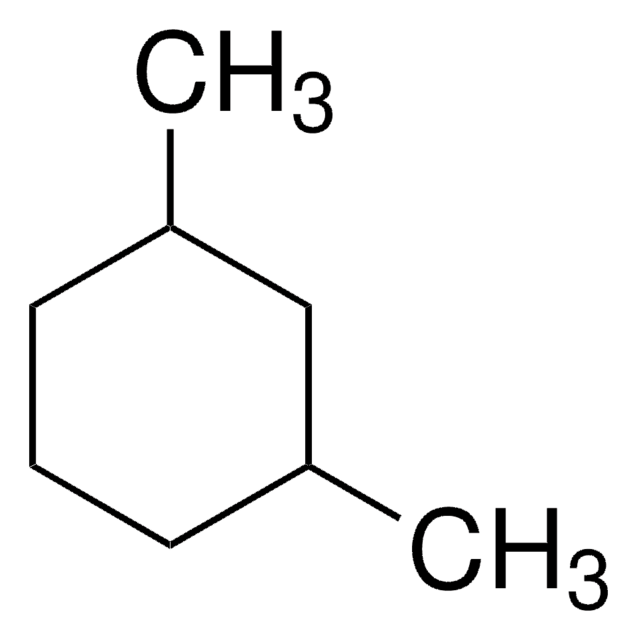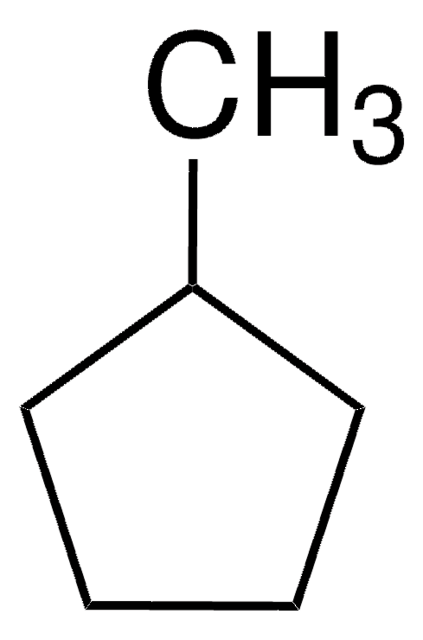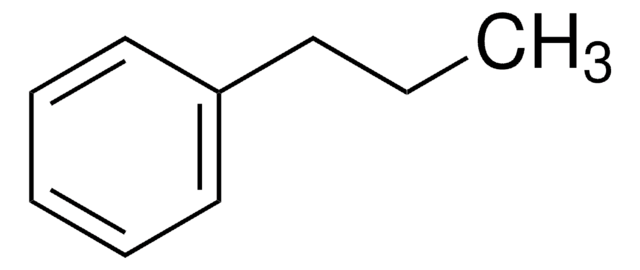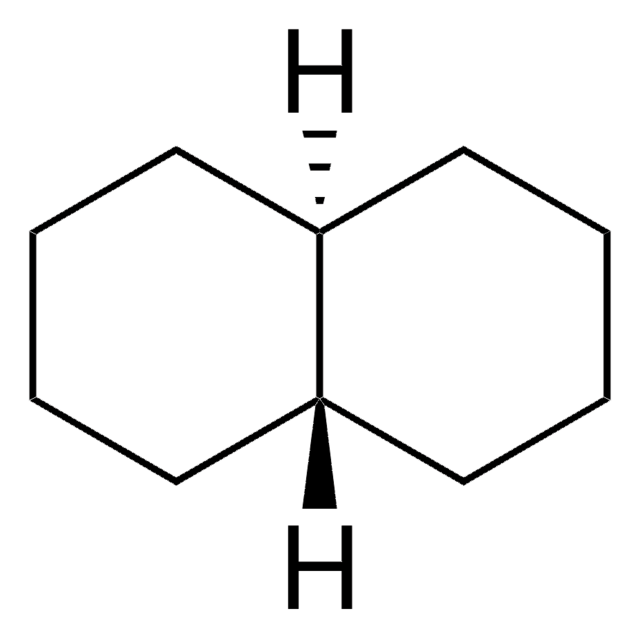About This Item
Recommended Products
vapor pressure
25 mmHg ( 37.7 °C)
Assay
≥99%
form
liquid
autoignition temp.
504 °F
expl. lim.
6.6 %
refractive index
n20/D 1.432 (lit.)
bp
130-132 °C (lit.)
mp
−111 °C (lit.)
density
0.788 g/mL at 25 °C (lit.)
SMILES string
CCC1CCCCC1
InChI
1S/C8H16/c1-2-8-6-4-3-5-7-8/h8H,2-7H2,1H3
InChI key
IIEWJVIFRVWJOD-UHFFFAOYSA-N
Looking for similar products? Visit Product Comparison Guide
Related Categories
Application
- A model for alkyl-substituted cycloalkanes to study their rate coefficients of reaction with OH radicals and Cl atoms.
- A model for light hydrocarbons to investigate their catalytic cracking performance.
- An organic monomer precursor to synthesize organic-inorganic hybrid polymer thin films by plasma enhanced chemical vapor deposition.
Signal Word
Danger
Hazard Statements
Precautionary Statements
Hazard Classifications
Aquatic Acute 1 - Aquatic Chronic 2 - Asp. Tox. 1 - Flam. Liq. 2 - STOT SE 3
Target Organs
Central nervous system
Storage Class Code
3 - Flammable liquids
WGK
WGK 3
Flash Point(F)
64.4 °F - closed cup
Flash Point(C)
18 °C - closed cup
Personal Protective Equipment
Certificates of Analysis (COA)
Search for Certificates of Analysis (COA) by entering the products Lot/Batch Number. Lot and Batch Numbers can be found on a product’s label following the words ‘Lot’ or ‘Batch’.
Already Own This Product?
Find documentation for the products that you have recently purchased in the Document Library.
Customers Also Viewed
Protocols
GC Analysis of Hydrocarbons in Gasoline on Petrocol® DH, Isothermal
Our team of scientists has experience in all areas of research including Life Science, Material Science, Chemical Synthesis, Chromatography, Analytical and many others.
Contact Technical Service













